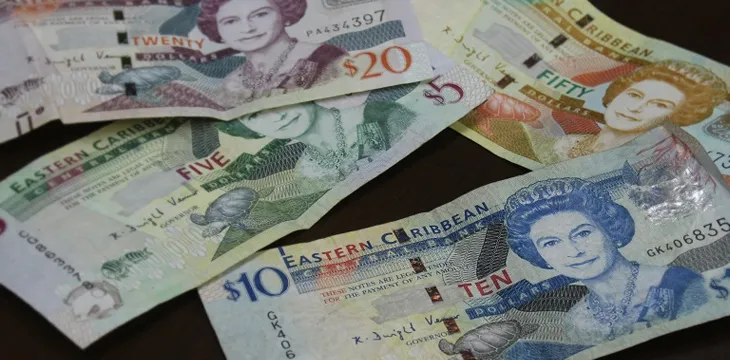|
Getting your Trinity Audio player ready...
|
While the Marshall Islands may have set the ball in motion with a move to adopt cryptocurrency as legal tender, halfway across the globe, there is now additional movement along the same path. The Eastern Caribbean Central Bank (ECCB) is preparing to conduct a pilot test for the issuance of a blockchain-based central bank digital currency (CBDC) as it anticipates introducing its own cryptocurrency as legal tender as early as next year.
The ECCB signed an agreement with Bitt, a FinTech firm out of Barbados, last month to help administer the pilot. Also onboard is Pinaka Consulting, who will be providing additional technical support. Together, they will be testing a “securely minted and issued” digital prototype of the Eastern Caribbean dollar (XCD), which will be distributed to financial institutions across the Eastern Caribbean Currency Union (ECCU). The new stablecoin has been dubbed the Digital XCD, or DXCD.
The DXCD, if successful during the pilot, will be rolled out to allow financial transactions to be conducted between consumers and merchants, as well as for peer-to-peer transactions, across the Caribbean. Funds can be sent across mobile devices, making them attractive for sending to family or friends in lieu of conventional money remittance services.
The ECCB governor, Timothy N. J. Antoine, adds that the pilot is more than just an “academic exercise.” He states, “Not only will the digital EC Dollar be the world’s first digital legal tender currency to be issued by a central bank on blockchain but this pilot is also a live CBDC deployment with a view to an eventual phased public rollout.”
The ECCB launched a new strategic plan in 2017 that was designed to reduce the amount of cash flowing through the area by 50% by 2021. It is also meant to bring greater stability to the financial sector, while boosting development of the member countries of the ECCU.
The DXCD will be put to the test starting this month and is expected to go through 12 months of trials. After that, it will be ready for launch in pilot countries for six months. Running in tandem with those trials will be several educational programs administered by the ECCB in order to raise awareness of the benefits of the new digital currency, as well as to increase public engagement with the coin.

 07-02-2025
07-02-2025 





